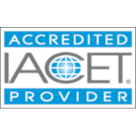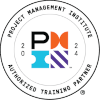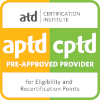Product Details
Topics Covered
- Needs assessment
- Requirements elicitation
- Stakeholder engagement
- Project communications
- Project documentation
- Requirements analysis
- Tracing and monitoring requirements
- Solution evaluation
- Modeling tools and techniques
- Solution design
- Managing change
- Project life cycle management
- Product life cycle management
Key Features
- Mobile-friendly
- Audio-enabled
- Over 200 practice questions
- Badge and credit-awarding
- Real-world case studies
- Fully accessible
- Games & Flashcards
- Expert-supported
- Video content
Course Preview
Course Description
Learning Outcomes
- Explain the general concepts of business analysis and its strategic importance
- Discuss the role of the business analyst in different organizations and identify skills needed
- Describe the concept of requirements and identify the various types of analysis
- Create a needs assessment and roadmap to the future state
- Analyze current capabilities, design future state options, and recommend the best option for implementation
- Identify and engage with stakeholders to prepare them for the transition to the future state
- Define requirements elicitation and outline the elicitation process
- Employ analysis tools and techniques to refine requirements in order to validate, verify, and prioritize requirements and essential product information
- Manage changes, linkages, and dependencies related to requirements
- Evaluate the solution to determine business value and the product's fitness for release
Notes
This course has an "Ask the Expert" feature, which submits your questions directly to an expert in the field you are studying. Questions are answered as quickly as possible and usually within 24 hours.
As an Accredited Provider, MindEdge offers for its learning events that comply with the Continuing Education and Training Standard.
Learners must achieve an average test score of at least 70% to meet the minimum successful completion requirement and qualify to receive credit. Learners will have three attempts at all graded assessments.
Project Management Institute, , the Registered Education Provider logo, Project Management Professional, , Project Management Body of Knowledge, , Agile Certified Practitioner, -, Risk Management Professional, -, the Talent Triangle, and the Talent Triangle logo are marks of the Project Management Institute, Inc.
Information in this course has been taken from A Guide to the Project Management Body of Knowledge, (® Guide) - Sixth Edition, Project Management Institute Inc., 2017.
The following list outlines the you will earn for completing this course, based on the certifications you have.
CAPM®/PMP®/PgMP® |
|---|
| Ways of Working PDUs: 6 |
| Power Skills PDUs: 4 |
| Business Acumen PDUs: 8 |
| TOTAL: 18 |
PfMP® |
|---|
| Ways of Working PDUs: 2.25 |
| Power Skills PDUs: 4 |
| Business Acumen PDUs: 8 |
| TOTAL: 14.25 |
PMI-ACP® |
|---|
| Ways of Working PDUs: 0 |
| Power Skills PDUs: 4 |
| Business Acumen PDUs: 8 |
| TOTAL: 12 |
PMI-PBA® |
|---|
| Ways of Working PDUs: 6 |
| Power Skills PDUs: 4 |
| Business Acumen PDUs: 8 |
| TOTAL: 18 |
PMI-RMP® |
|---|
| Ways of Working PDUs: 0 |
| Power Skills PDUs: 4 |
| Business Acumen PDUs: 8 |
| TOTAL: 12 |
PMI-SP® |
|---|
| Ways of Working PDUs: 0 |
| Power Skills PDUs: 4 |
| Business Acumen PDUs: 8 |
| TOTAL: 12 |



